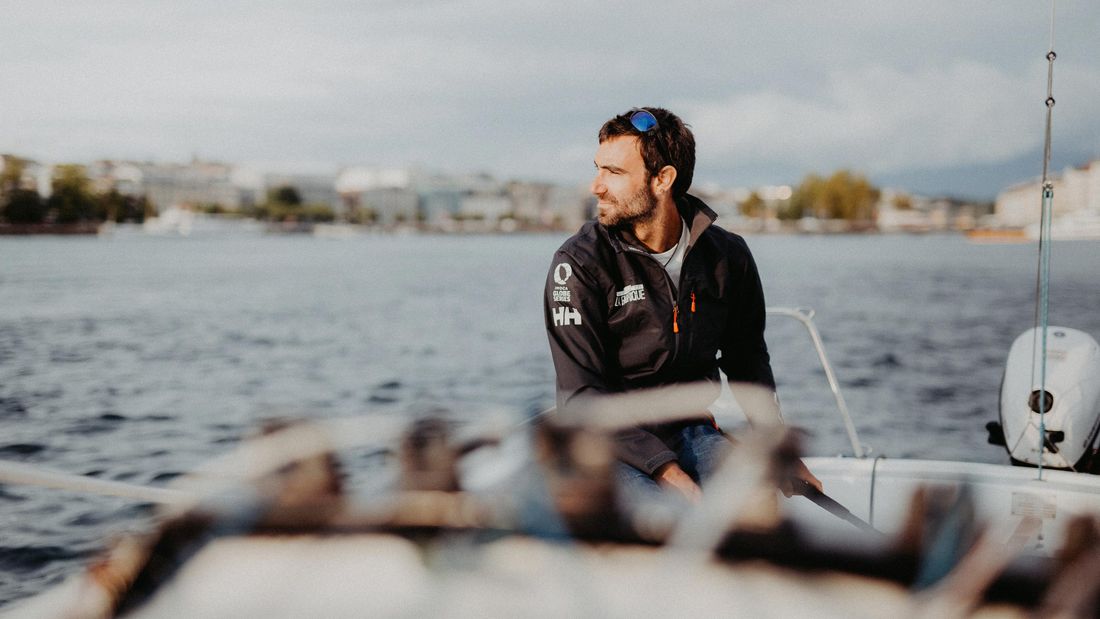
A gift from the sea
At the age of five he transported cargo in a nutshell, at 23 he was the youngest man in history to compete in the Vendée Globe, the legendary world circumnavigation sailing race.
From the local lake Geneva to the roaring oceans
On a mystical autumn morning, we take Alan’s boat out of Port-Noir Harbour in Geneva, and after the professional sailor makes a few precise hand movements, the white sails fill with wind. What already feels turbulent to us is not comparable with the adventures that Alan experiences on the deep blue oceans. He sails alone for months in waves over eight metres high and stormy seas in order to sail around the world without stopping. On placid Lake Geneva, Alan is now completely relaxed. Here there is nothing to fear, such as floating containers that could collide with his boat.
On the lake, looking towards the multicultural and spirited city of Geneva, we listen to the wind in the sails and enjoy the calm. Alan describes his hometown as a place where many decisions of international importance are made. This parallel has also shown the way forward for his life. «People think I am a bit crazy,» says the young man with a hearty laugh. His passion for sailing and his positive attitude towards life are literally palpable. «I cannot imagine a life without a boat,» says the seafarer and talks about his swimming companions.


The safe haven
Young Alan knew where port and starboard were located before he could tell the difference between left and right. His childhood playroom was the upper deck of the small houseboat L’Almyr, whose name is a combination of his first name (Al) and the first name of his mother, Myriam (Myr). At Port-Noir Harbour in Geneva, the five-member Roura family shared the home on the water without big luxuries, e.g. without a shower and electricity. Alan really appreciates that he was able to grow up in such a manner and he fondly reminisces about this. Alan and his siblings were responsible for doing the laundry. Since there was no washing machine on board, the laundry basket was heaved into a small rowing boat and rowed through the canal at Geneva Harbour to the landing at the famous water fountain. When droplets from the water jet were felt, one was at the destination. The «cargo» was lifted onto land and carried to a laundrette in the centre of Eaux-Vives. It is a lasting memory that still conjures a smile on Alan’s face.
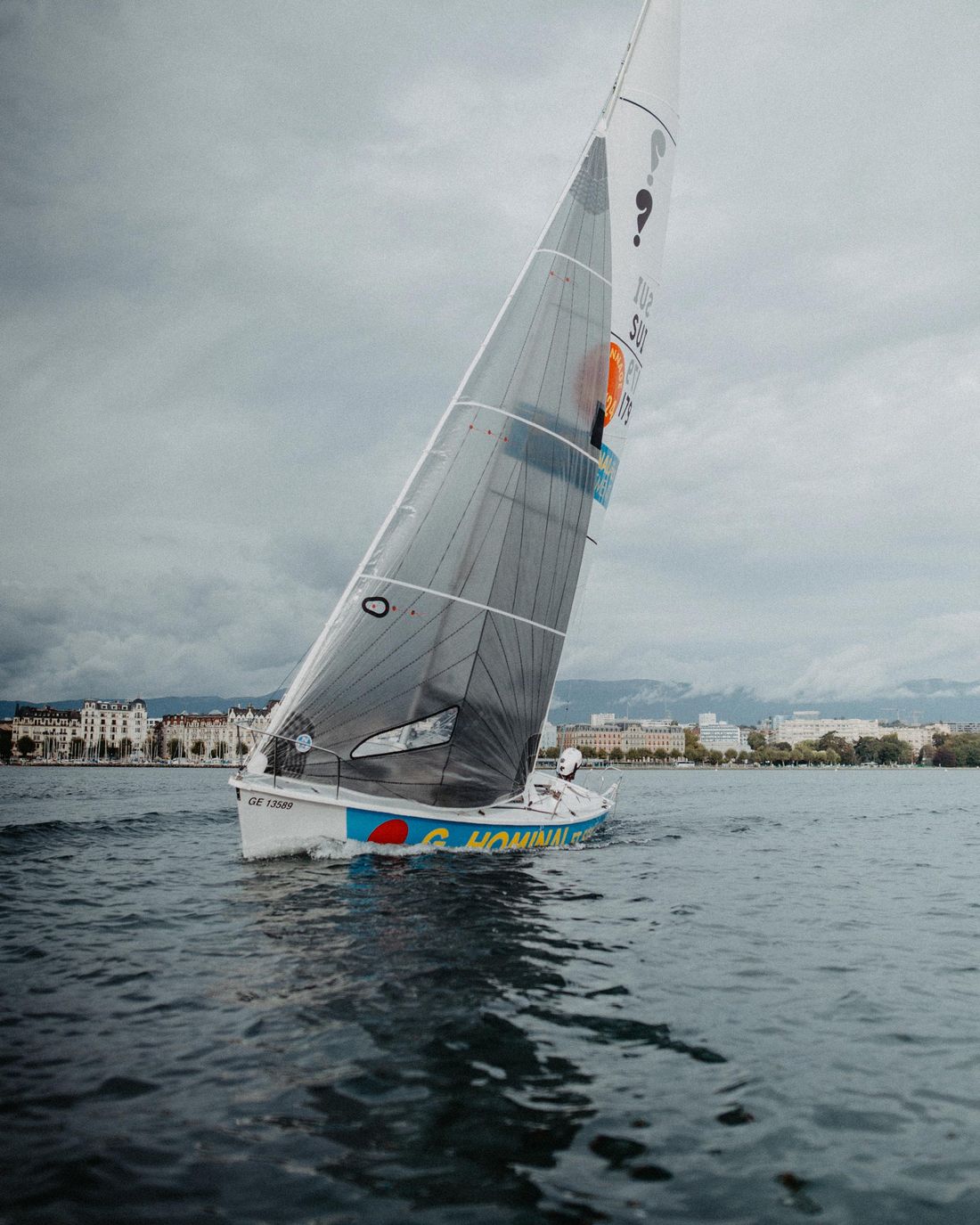

Boats are still his home when he is not spending his few days off with his wife and his daughter in a small house in Brittany or visiting his family and friends, who still live in his hometown, Geneva. The arrival at Port-Noir Harbour is always a kind of homecoming for Alan. His closest friends live and work there, and so he visits them boat by boat. Over a cup of coffee on board, they talk shop in sailor jargon about an object of desire. He also pays a visit to the old cutter L’Almyr. There we encounter his friendly father, who today continues the Roura family tradition and is treating himself to a shower – in other words his daily morning bath in Lake Geneva in water that is 10 degrees Celsius. For true sea bears this is not a problem – even when the outdoor temperature is below zero. A stop to see Alan’s friends at Les Corsaires boat rental, a small blue house with yellow pedalos right by a landmark of Geneva, cannot be skipped. This place has stood still in time. Since Alan’s childhood, the building has stood on the lakeside promenade and contrasted with the constantly changing city.
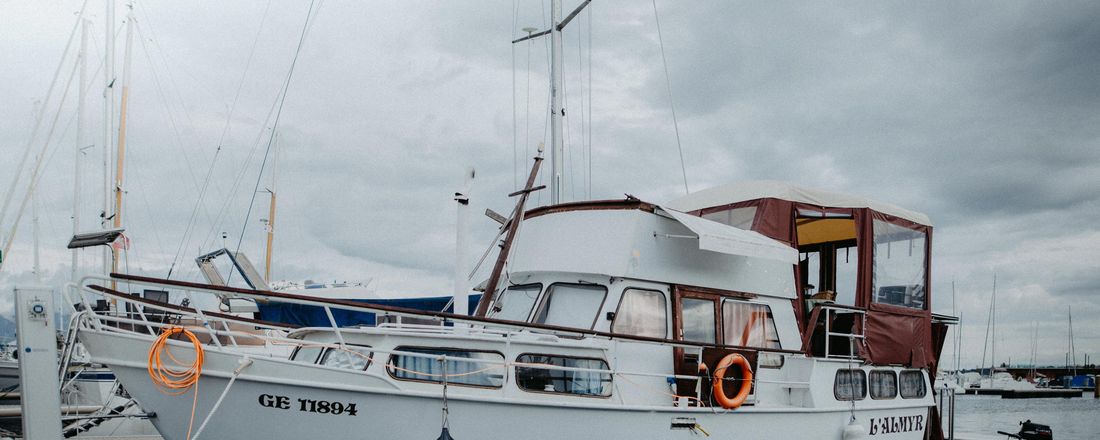
Cast off and sail four and a half times around the world
Alan was eight when the Roura family left their cherished home in Geneva and began their greatest adventure. The new floating home was called Ludmila. Alan says that he really liked the ship’s Russian name. The boat, which was bought in Geneva, was transported to France in a truck, and in 2001 the family set sail in the Mediterranean Sea with the goal of exploring the whole world. They travelled on the 13-metre-long sailboat over 100,000 nautical miles over a period of eleven years. A trip of this magnitude was not originally planned. And if 20 years later the Rouras were still underway, one could probably follow their trip on Instagram. But the stories from those days can only be told by the family itself, which is how these genuine adventure stories should be told. On this journey Alan put two special crosses on his mental sailor’s chart – they are the latitudes and longitudes of his favourite places. One is the Bay of Islands in the north of New Zealand and the other is the wild and sparsely populated islands of Tonga in the South Pacific. Alan learned everything on the water, be it arithmetic or sailor knots – and during this time he never went to school. Visiting countries and peoples all over the world gave him an understanding of other languages and cultures. «I had the privilege to explore the most beautiful corners of the world and to live there!» Alan sums up happily.
His wish to one day become a professional sailor arose on the boundless vastness of the oceans. At the age of 13 Alan began to work in the professional world and thereby did his bit so that the Roura family could keep itself financially above water. Together with his father he worked on the construction of harbour buildings, and he even used his muscle power during the construction of a palace in the Caribbean. The young man acquired knowledge of boat building, which would later be of particular importance, while working in various shipyards. Alan’s father encouraged him to follow his dreams; from him he inherited the courage and the self-confidence to undertake the adventure as a professional sailor. Dreaming of soon owning his own boat, Alan wisely filled his piggy bank in his bunk.

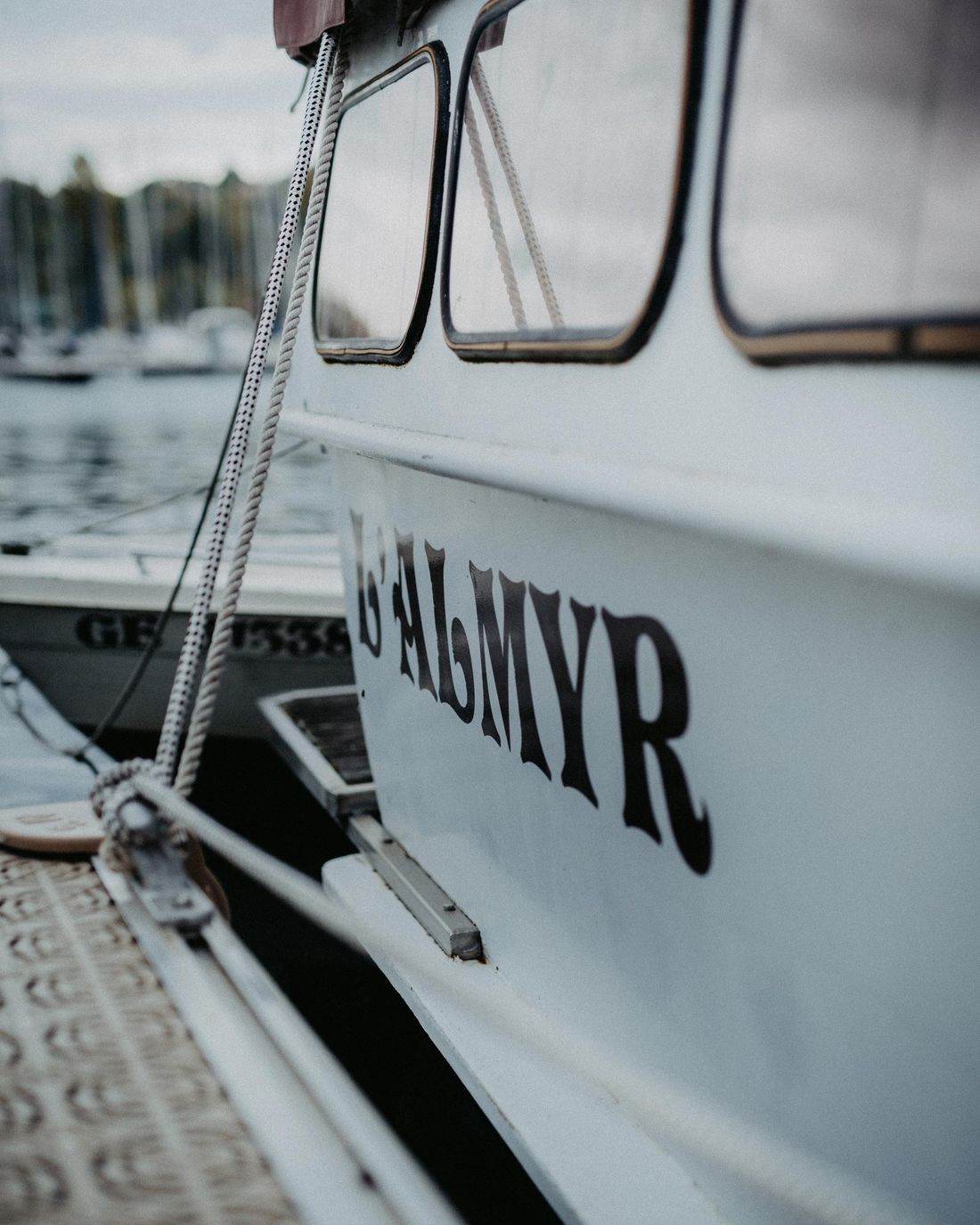
The mysterious name of the first boat
Among seafaring people it is agreed that the name given a boat when it is christened should never be changed! It is believed that the name of the boat is of particular importance. Often it is related to the history of the boat. Alan’s very first boat of his own was called Gift, and, in complete agreement with its name, it was a gift. For a long period of time, Alan’s family was sailing its boat in the Lesser Antilles, a group of islands in the Caribbean. On the southernmost island, Grenada, Alan’s gift was waiting for him: a Mini 6.50, the smallest offshore racing boat. His gift was floating in the sea alone and one day it washed ashore – a gift from the sea, so to speak. The fishermen from the island carefully lifted it onshore and Alan was the proud buyer. He immediately refurbished his boat himself and discovered with her in the following years a passion for boat racing at numerous races in the Caribbean and around New Zealand.
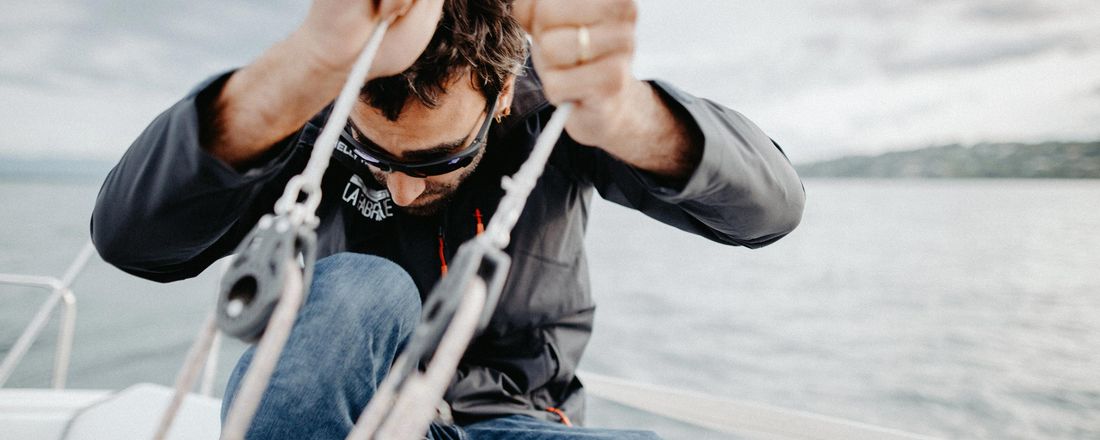
His career threatens to capsize
At the age of 18, Alan set foot on European soil again and for the first time with his Yachtmaster, an international skipper certificate. Navman, Alan’s second boat, became his new companion. He wanted to compete in the first famous regattas with it. Before then, many hours of work awaited Alan. The boat, made entirely of wood, was in poor condition. Whereas his family alighted in Geneva, Alan competed in his first race and participated in the Trophée MAP in Brittany. The second time he competed in the Mini-Fastnet, the mast broke and he literally had to strike the sails.
On-site repairs were too expensive for the young sailor, so Navman was shipped to Geneva, Switzerland. In order to scrape together the necessary money for the preparation, Alan repaired equipment in various fitness studios. At the start of the Mini Transat, one of the most challenging transatlantic races for this category of vessel, Navman was fully operational again, but there was hardly any time for training. «In order to save money, during the preparations in France I slept in my small car, a Renault Twingo,» says Alan with a laugh.
In 2013, Alan began his first transatlantic solo race with, compared to the 30 other participants, the oldest boat and lowest budget. For several days he was alone on board without any possibility of communicating in order to request weather conditions and without being informed about the progress of the regatta. Alan sailed on imperturbably with his goal in sight. Finally, as the youngest participant, he proudly took 11th place.
With another boat named Exocet (French for flying fish) he aimed high, and for the first time he began to participate in Class 40 regattas, the 12.2-metre- long boats. «I had a bit of trouble with Exocet, but after many exhausting hours, we got along with each other,» explains Alan, the boat whisperer, with a grin. He had to abort the Route du Rhum after a storm due to damage in 2014, and one year later in the Transat Jacques Vabre, a double transatlantic regatta, he flew across the finish line in tenth place on Exocet.
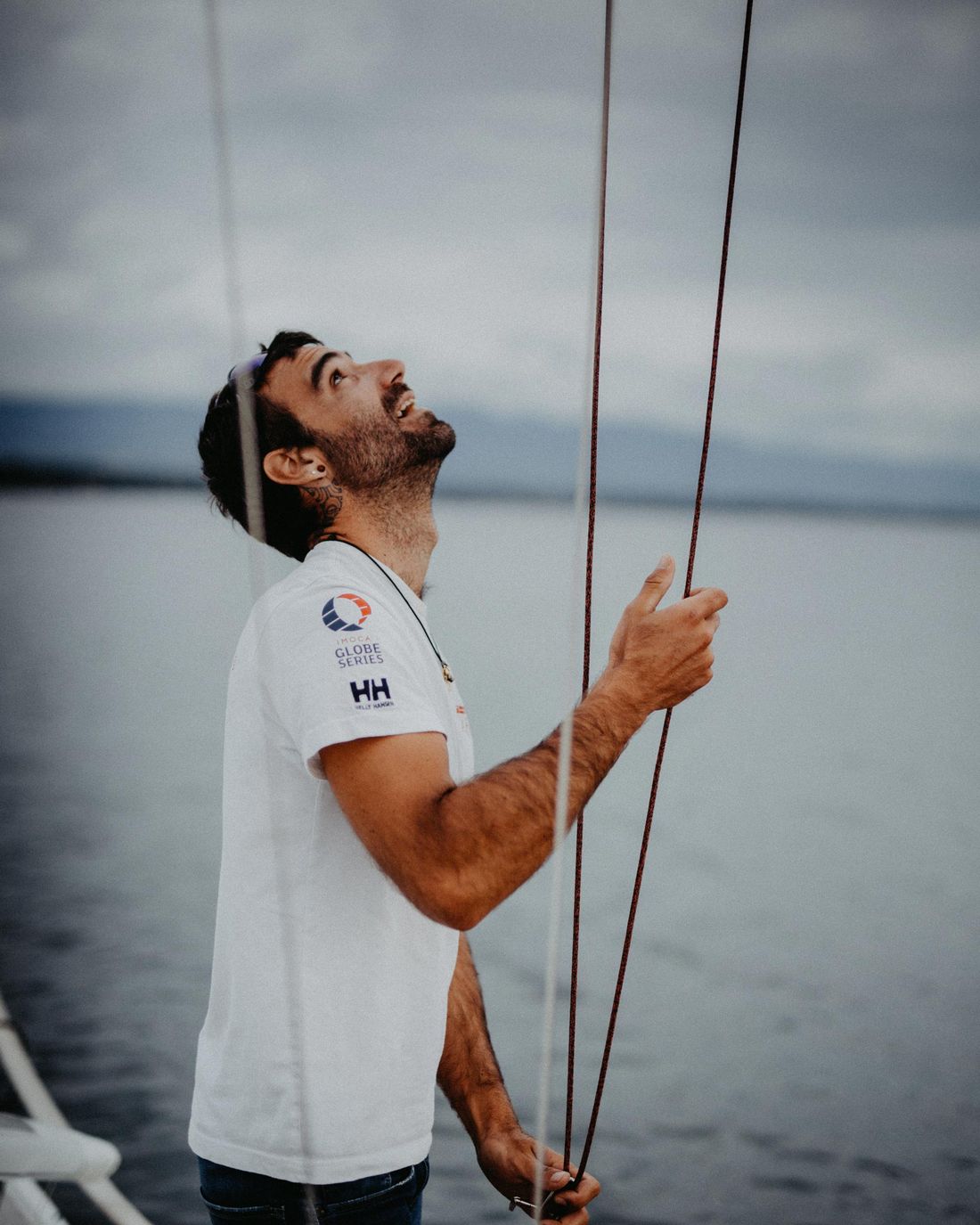
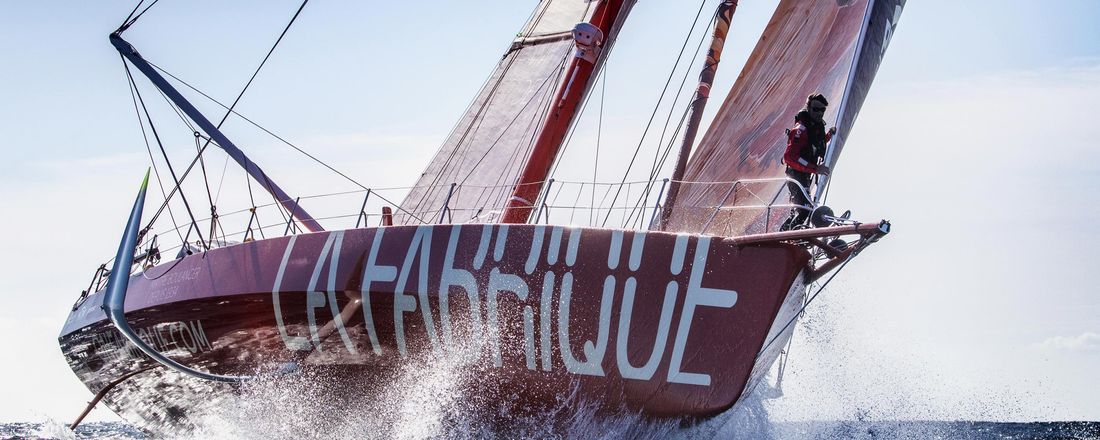

The adventures of Superbigou
At the end of 2016, Alan put to sea. At the age of 23, he was the youngest sailor in the history of the non- stop regatta Vendée Globe, known as the Everest of the seas. His Superbigou was one of the oldest of the 29 boats in the competition. Alan’s newest boat, a nearly 20-year old IMOCA 60, was impressive with a length of 18.28 metres and big white sails. It almost looked like the robust Breton superheroine Superbigou with a white ladies bonnet, whose adventures are chronicled in a French comic book and whose name it bears. On Sunday the 6th of November 2016, the race began on the French Atlantic coast and continued along the Antarctic Ocean once around the globe. History shows that more than half of the competitors did not make it to the finish line.
The most rigorous sailing race around the world allowed Alan to experience one of his most difficult moments. In the middle of the Indian Ocean, with waves that were over eight-meters-high and gusts of wind over 100 km/h that swept across the sea, a floating object tore his rudder off. Shortly thereafter, the boat began to take on water. Would Alan be stranded with his maltreated Superbigou somewhere in the south? «I was afraid,» he admits. Repairing a rudder on land is already complicated enough. Carrying out repairs on a stormy sea seemed virtually impossible. «But if you respect the ocean, it will respect you too. That sets you free,» says Alan, as if he had made a pact with the sea back then. He repaired the boat in three hours. «Sometimes in a person a power arises with which one achieves the impossible,» continues Alan with reverence. After 105 days alone at sea he finally saw the French coast on the horizon. Alan had done it. Trials like these thus became positive memories. «It is one of the most beautiful stories of the sea that I have to tell today.»

The sea calls
The year 2020 brought a few new things: Alan became the proud father of a daughter and the owner of a new boat: «La Fabrique». At the same time, the preparations for the Vendée Globe, which takes place every four years, began. The short nights with a small child were certainly helpful, because a maximum of two hours of sleep in a row for three months awaited Alan on board. Also meals, like those of his daughter, were not really varied. Freeze-dried food was on his menu.
Without a shower and heating, Alan had to forego comfort. «I live in a box that makes a lot of noise, is very fast and in which it is wet everywhere,» said Alan with a grin before the start on the 8th of November. Out on the open sea Alan took one day at a time, reacted to the state of his «La Fabrique», the weather and the sea, and eminently felt his «true self» there. After many incidents and not less than 95 days on the high seas, the passionate sailor was able to hug his family again on 11 February 2021.

